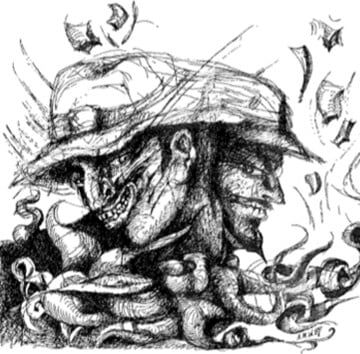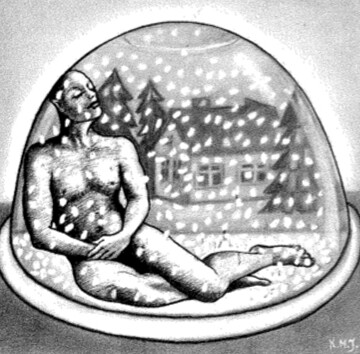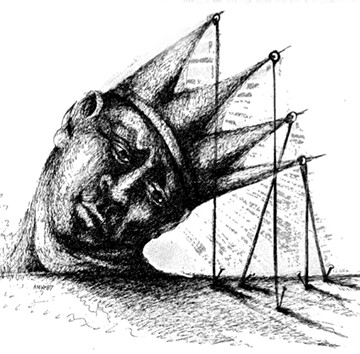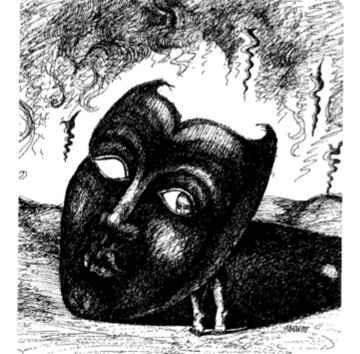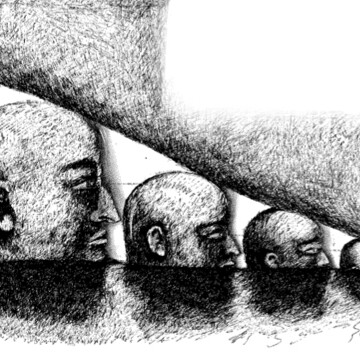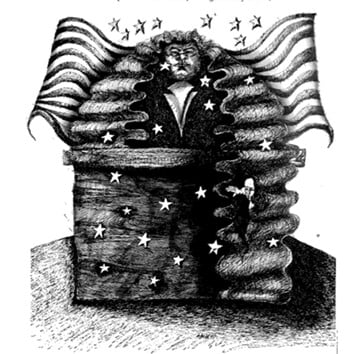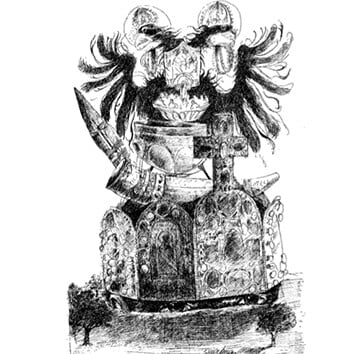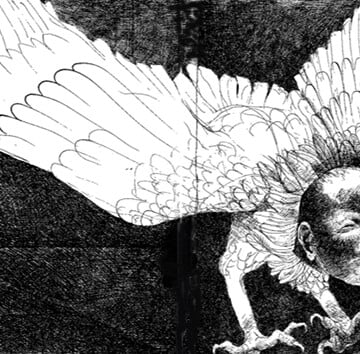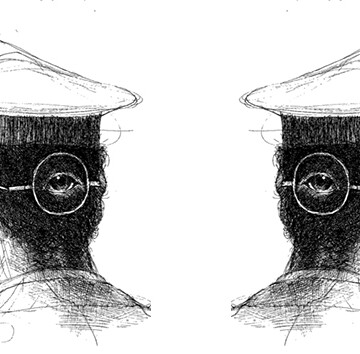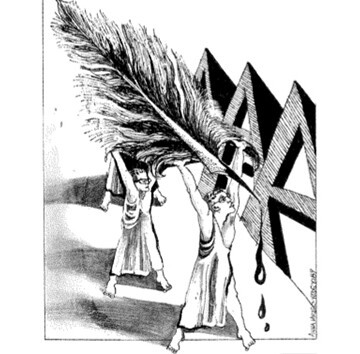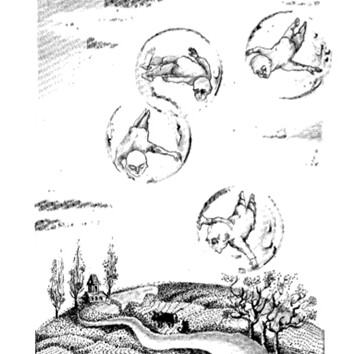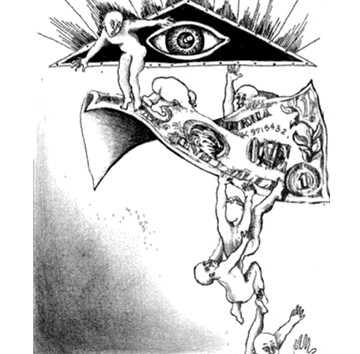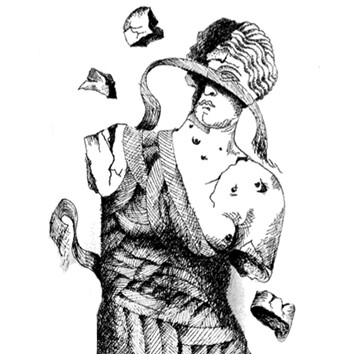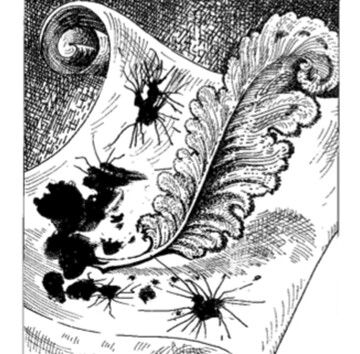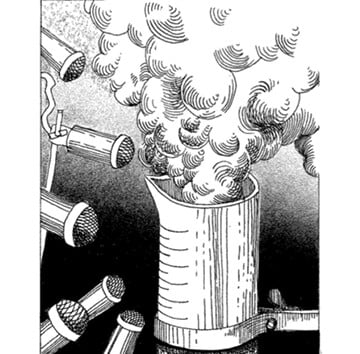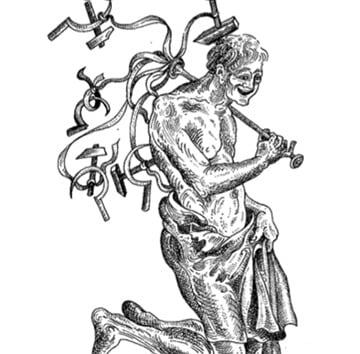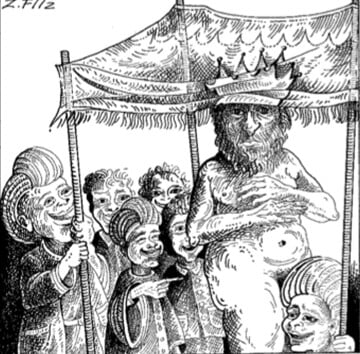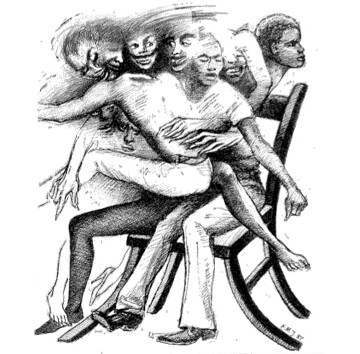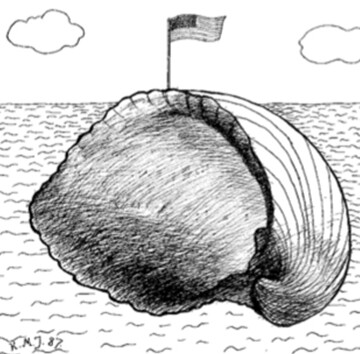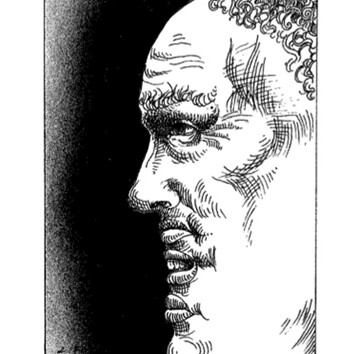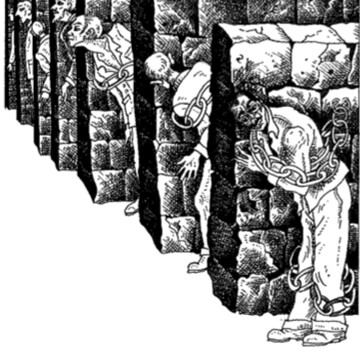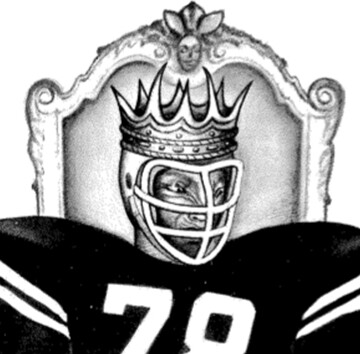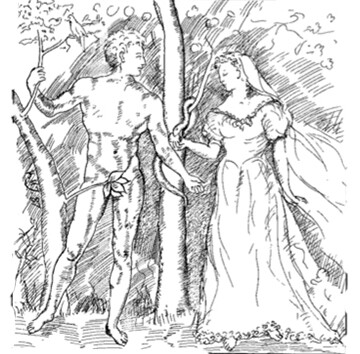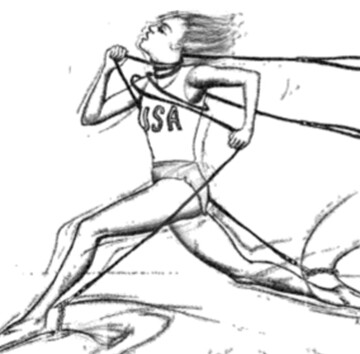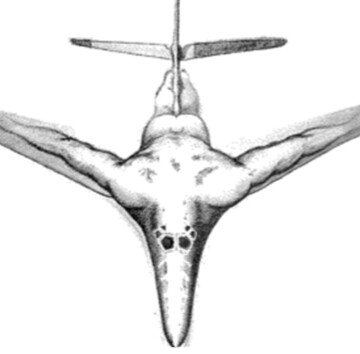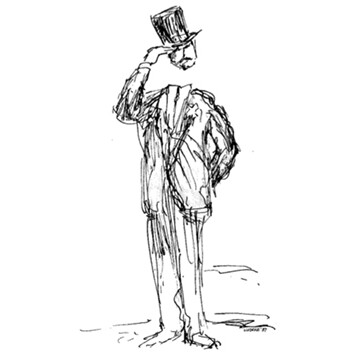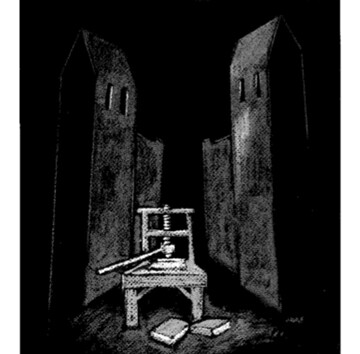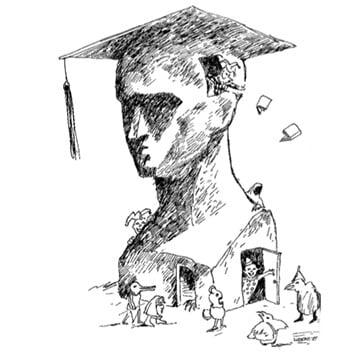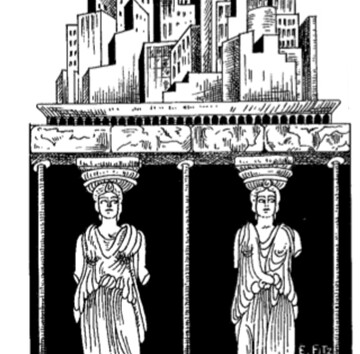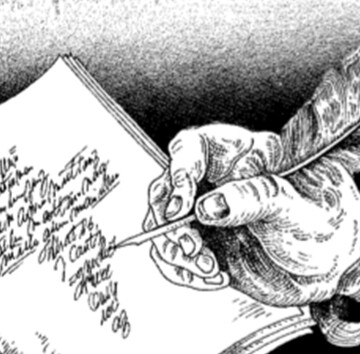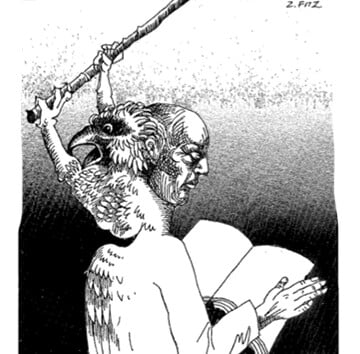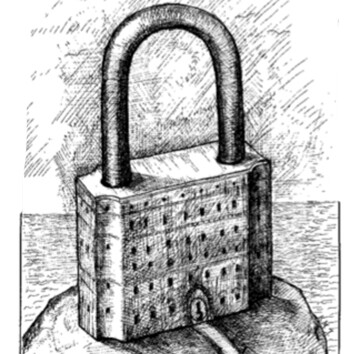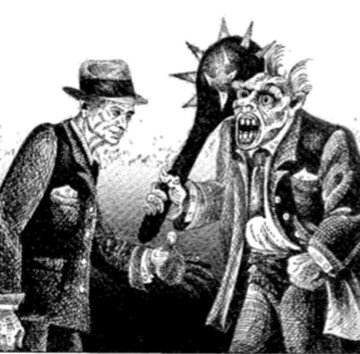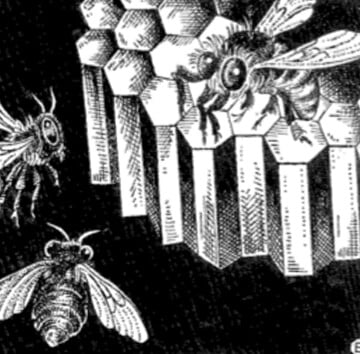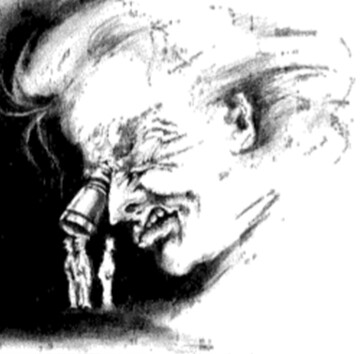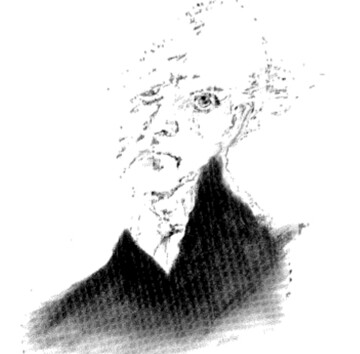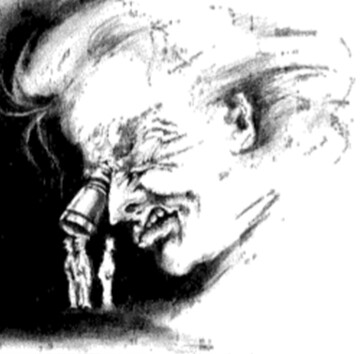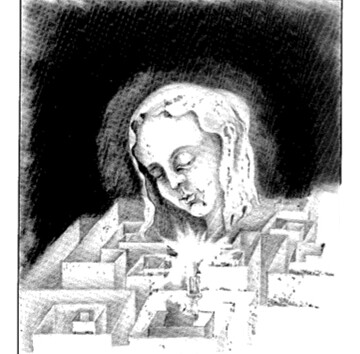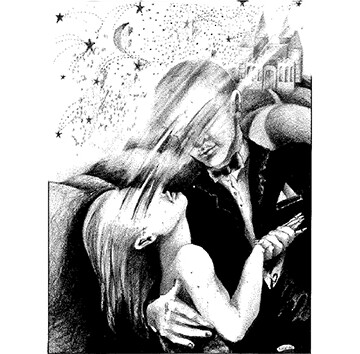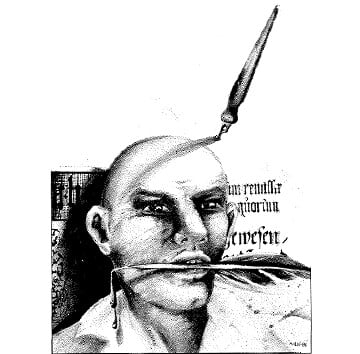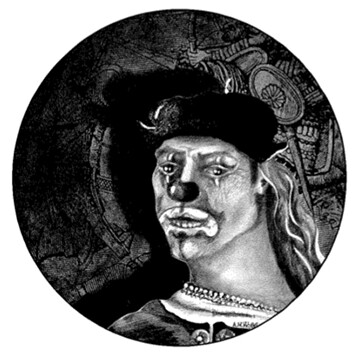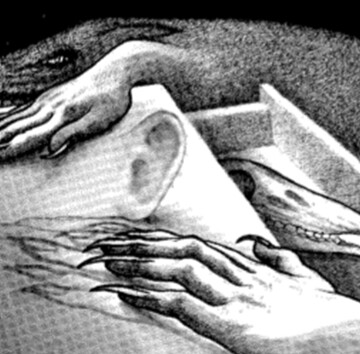“A Leninist cannot simply be a specialist in his favorite branch of science. . . . He must be an active participant in the political leadership of his country.” —Slogan of Moscow University Substitute “professor” for “Leninist” and the quotation would appear almost a cliche to many American academicians. Yet such corollary Leninist themes and...
Category: Web
Academic Afterword: On the Occasion of My Retirement From the Academy
In my institution I have been sharply critical of the public relations attempts at self-justification and self-elevation in the interest of the community’s largess, the larger grants of public money to support a larger and larger institution. I have been particularly critical of my school’s official insistence that its primary concern is with “new knowledge,”...
A Dike To Fence Out the Flood
When in September of 1787 the new instrument of government proposed by the Great Convention went out from Philadelphia to be received and considered by the several commonwealths connected through the old Articles of Confederation, those fraternally affiliated societies saw the document delivered to them through the Continental Congress according to their own needs and...
Conservative Commons
American conservatism in the late 18th century was unlike the European species, where popular “peasant” and articulate “aristocratic” conservatism were able to develop together and to maintain a common front against the ascendant bourgeoisie. With the exile of loyalists and the waning of the old Federalists, American conservatism was effectively decapitated; nevertheless, a popular conservatism...
Revolution
Times of crisis are not distinguished by respect for rights—although, paradoxically, all revolutions claim to be mounted in the name of rights. During our War of Independence, criticism of the patriot cause was an invitation to a lynching, and Jefferson defined the Tory as “a traitor in thought, if not in deed.” In 1773 George...
A New Logic of Human Studies
Consider the following paradoxes. A welfare system designed by well-meaning politicians guided by the advice of the wisest sociologists and economists available, costing billions of dollars, whose net effect is radically to increase the numbers of the poor, especially women and children, and to deepen their misery, incapacity, and despair. A stock market which rises...
What the Founders Didn’t Count On
“I assert that the people of the United States . . . have sufficient patriotism and intelligence to sit in judgment on every question which has arisen or which will arise no matter how long our government will endure.” —William Jennings Bryan As citizens it is fitting that we engage in acts of civic piety...
Judicial Editing and Congressional Inaction
Much has been written in recent years on how courts construe law, whether it is the Constitution or a statute. The discussion typically addresses the judiciary’s search for the “intent” of the framers or legislators and reflects a continuing debate on what limitations our system of government places on a court when it applies written...
The Empire At Europe’s End
In the German name for Austria, Osterreich, Reich denotes more than “empire” in the sense of territorial extension; there is also a certain spiritual content. In the Middle Ages, empire meant the Eastern Roman Empire of Byzantium, and after Christmas Day 800, when Charlemagne was crowned by Pope Leo XIII, the Sacer Imperator Romanus was...
The War Years
World War II seems both near and far away. In one sense, it seems like only yesterday that I was 17 years old, in uniform, and in Georgia and California. In another sense, that period is ancient history. We have traversed a century or more in human experience since the early 1940’s. The conflict was...
Military History: Vital, Neglected
“What does it profit the reader to wade through wars and battles and sieges if he is not to penetrate the knowledge of the causes which made one party succeed and the other fail?” —Polybius Polybius was the most perceptive chronicler of Rome’s rise to greatness. He concentrated on political and military history not merely...
The New Freedom of Rhyme
In the days of Latinate learning, there was an animus against rhyme which must have been a considerable nuisance in that heavily inflected language. In his Observations on the Art of English Poesie of 1602, the English poet and composer Campion remarked: The facility and popularity of Rime creates as many poets as a hot...
A Mouse Or a Prometheus
It is said that whatever theme a poet chooses to deal with—the insignificance of a mouse or Prometheus’ heroic deed—what really matters is the ways in which a certain reality, certain feelings, and certain events are transposed into a poetic image. There are few objections to this opinion—it is supported by many works of art...
Name That Tune
First things first. In the briefly intersecting histories of rock and roll and Pentecostalism, it is recorded that Jerry Lee Lewis, at age 15, was expelled from Southwestern Bible Institute in Waxahachie, Texas, for unrepentantly playing a boogie version of “My God Is Real.” In view of the depth and breadth of the Jim Bakker-PTL...
The Price Of Free Verse
“A post in our times,” wrote Thomas Love Peacock, “is a semi-barbarian in a civilized community.” What Peacock meant by civilized community is not too hard to guess: that rational, humane, progressive society of Britain and Northern Europe, which Peacock’s eccentric friends—Shelley, Coleridge, and Byron—all seemed bent on destroying. Poets were barbaric, because they continued...
Doggerel In a Good Cause
As editor of the Literary Review, I am afraid I have formed rather a low opinion of the nation’s poets. Every week 20 or 30 offerings arrive through the post, and I often glance at them before handing them over to the magazine’s saintly, long-suffering poetry editor. With amazingly few exceptions, these “poems” are prosaic,...
Scientific American Goes to Moscow
Who is Mr. Piel? He is an American, a Harvard graduate (1937 magna cum laude), and a journalist who has devoted his career to the promotion of public understanding of science. From 1947 to 1984 he was president and publisher of Scientific American and is now its chairman. (In 1984 his son, Jonathan Piel, became...
A Soviet Psychosis
As Mikhail Gorbachev moves forward in his role as the new Vozhd of the USSR, he must take pride in a unique achievement. In a few years, he has managed to internationalize a Russian word—glasnost—and by its repeated use at home and abroad has dazzled the world with miracles that have yet to materialize. Whatever...
A (Pardon the Expression) Baccalaureate Address
The irrepressible John Towne tells us what he really thinks of higher education. Something to offend nearly everyone. I want you to know I share your disappointment that nobody you really care about and wanted could be here to make this speech. Sorry that Gary Hart is indisposed. Alan Alda was too busy and so...
Between Two Worlds
Reflecting on his upbringing in Trinidad, V.S. Naipaul denies cultural identity to his part of the Caribbean: “Nothing bound us together except this common residence.” Indeed, the area called Caribbean is constantly redefining itself. Its tongues include English, French, Spanish, and Dutch. Its population shows large deposits of Chinese and Indians as well as African...
The War of Mexican Aggression
” . . . As honest men it behooves us to learn the extent of our inheritance, and as brave ones not to whimper if it should prove less than we had supposed.” —John Tyndall Much in the news recently, especially in the Southwest, is the problem of illegal immigration from south of the border....
The Silent Invasion
“It is surely arguable that during the third century of American existence the main problem of this nation will be—it already is—that of immigration and migration, mostly from the so-called Third World.” —John Lukacs Last year the Immigration and Naturalization Service (INS) apprehended 1.8 million illegal aliens along our southern border—less than half the number...
A Superfluous Man
“I once voted at a presidential election. There being no real issue at stake, I cast my vote for Jefferson Davis of Mississippi. I knew Jeff was dead, but I voted on Artemus Ward’s principle that if we can’t have a live man who amounts to anything, by all means let’s have a first-class corpse.”...
Transcendent Memory
The significance of the past—the past of a minute or an hour ago, 100 years ago, or 5,000 years ago—is of consuming interest to me; many writers are concerned with the effects of time on people and institutions. The past provides writers with most of their raw material. Proust had only to taste a sweet,...
The Order of Virtue
For some time now, the literature of the sporting world has offered one of the most agreeable ways of experiencing revisions of public reality. Perhaps this is why it is hard to read Howard Cosell’s best-seller I Never Played the Game without a sense of deja vu. “In the beginning,” he writes, “I had romantic...
A Myth In A Garden
The following is the text of Mr. Lytle’s speech at the 1986 Ingersoll Prizes Awards Banquet: Born the day after Christmas, 1902, like a wet firecracker, as my mother remarked, I entered a world that lived with and by other creatures. My grandchildren and their ilk are unaware that they are creatures. I am closer...
Politics of Weakness
In the 1980’s the doctrine of sexual equality is increasingly being misapplied. The current discussion of women’s sports provides a graphic illustration. The central premise of the sexual egalitarian is simple: It is unjust to reward or support a woman less than a man, when the woman performs on the same level. Many would agree...
Manly Codes
When Chuck Yeager was shot down behind enemy lines in World War II, shrapnel wounds in his feet and hands, German Messerschmitts still above him, he remained calm and controlled. “Back home,” he said, “if we had a job to do, we did it. And my job now is to evade capture and escape.” When...
Rescuing Story From History
By the end of the 18th century, the novel had already begun to replace the rich variety of narrative genres that preceded it. This is a familiar theme in the history of the arts in the modern period. One particular artistic form comes to be preferred for its freedom; it crowds out the other forms,...
Visionary Fiction
Susan had set up the ironing board in the kitchen and upended the iron there while she sprinkled her blouse. I could not detect the heat waves rising from the face of the iron, but the morning sun showed them clearly on the refrigerator door, curling and uncurling in hypnotic arabesque. That became my image...
Some Thoughts on Being A Writer
The following is the text of Mr. Naipaul’s speech at the 1986 Ingersoll Prizes Awards Banquet. I do not really know how I became a writer. I can give certain dates and certain facts about my career. But the process itself remains mysterious. It is mysterious, for instance, that the ambition should have come first—the...
Having Opinions
“The public buys its opinions as it buys its meat, or takes in its milk, on the principle that it is cheaper to do this than to keep a cow.” —Samuel Butler When opinion polls are conducted on some urgent matter of the day (the character of Colonel Qaddafi, or the compatibility of some soon-to-be-married...
Gatekeeping Functions and Publishing Truths
When a forgery is uncovered or a plagiarized volume appears or a fake letter is adduced to support a mediocre manuscript, cries are sent forth that there is a need for tighter security by publishers. This is often coupled with a complaint that authors should scrutinize themselves more carefully. The burden of my remarks is...
About the University and Its Curriculum
The sociological thesis that education is “for society” is acceptable today because in this statement, “society” is a sufficiently vague term to prescribe fewer and fewer binding guidelines as we ascend from lower to higher education. The thesis becomes unacceptable when an ideological restriction is added: The school must be a small replica of society....
The Latin Invasions of English
“When all is said and done, something sticks in the Barbarians.” —Rudyard Kipling We need a practical education, an education that will be valid in the unforeseen and unforeseeable future. There are many possible forms, but all must include mathematics and Latin. Of the 100 most commonly used words in English, only 10 or so...
Still At the Still Point
Thirty-one years ago, when I had aspirations as an up-and-coming critic in the Catholic press, I wrote an essay on T.S. Eliot that was published in the Jesuit weekly, America. I thought it daring to suggest that the major poet of our time was something less than the robust Christian figure which an effective propagation...
Ezra Pound’s ‘Language of Eternity’
What (to ask one bizarrely unfashionable question) is civilization? Set aside geography, climate, genetics, and luck. The high classical civilizations are marked by certain indispensible accomplishments: a serious respect for facts; related to this, a steady application of work toward stable wealth; a conception of justice moving in two directions, toward society as a whole...
Epictetus In Uniform
I was all of 38 years old when I first encountered the classic text that would influence my life. The year was 1962, the book was Epictetus’ Enchiridion, and we got off to a very unpromising start together. I could not bring myself to see how what that old coot Epictetus had to say bore...
A Civic Proposal
The year 1986 marked the 100th anniversary of the birth of Ludwig Mïes van der Rohe. Mr. Mïes (the plumage “van der Rohe” was invented by him well into his career) is considered by many to be the most influential architect of this century. Schooled in Germany before the First World War, he worked his...
Media Metaphysics and Mid-Term Results
American elections are difficult enough to interpret in Presidential years. In by-election years, like 1986, political analyses assume the proportions of tea-leaf readings—or so television network analyses would seem to suggest. Faced with complex nonreductionistic information, the media resorted to metaphysical quick-fixes to explain complicated events. The U.S. Senate was recaptured by the Democratic Party,...
Political Art and Artful Politics
We speak as readily of the art of politics as we do of the art of cooking or writing, and what we have in mind in each case is what the French call savoir faire. This sense of “art” claims excellence for the activity of which the term is predicated, and since to know what...
Economic Ideology and the Conservative Dilemma
From Edmund Burke’s distrust of “sophisters, calculators and economists” to Calvin Coolidge’s boast that “the business of America is business” on to George Gilder’s “economy of heroes” has been a long journey that conservatism has not weathered well, either intellectually or politically. What was once a robust philosophy concerned with all of humane culture has...
Orwell and Religion
In his novel 1984, George Orwell created a world devoid of freedom and justice, truth and goodness. But there is another void in the book that critics seldom notice: the utter lack of religious faith. The absence of any vestige of religion seems to Christianity’s advantage: The Orwellian world is such a desolate, inhuman, and...
Olaf Stapledon: Philosopher and Fabulist
The most widely known of Merseyside philosophers was never a full-time academic. But he gave classes for the Workers Educational Association from 1912, extra-mural lectures on philosophy from the 20’s, gained his Ph.D. in Liverpool in 1925 (in philosophical psychology), and was an active and famous philosopher till he died, in 1950. Olaf Stapledon was...
David Jones: The Last Liturgical Poet
The Welsh poet David Jones (1895-1974) wrote two of this century’s outstanding literary works, and yet neither a single line of his writing nor any mention of his name is included in so recent a collection as The Harper Anthology of Poetry (1981), an otherwise excellent volume of English and American verse edited by the...
The Search For the Sacred
Religion is inseparable from the sacred, the channel through which the divine transcendent communicates with man, according to man’s sensate nature. Any object, natural or man-made—a Gothic cathedral or the lapis negra excavated on the Roman forum—may assume the character of sacredness. Through it, the divine communication becomes incarnated, and, in the intellectual-rational order, verities...
The Doors of Deception
One of the many sociological uses of Hollywood is its dramatic availability when things go wrong in America. Michael Satchell, for instance, has raised the question in Parade of whether the movies by too often glamorizing drugs and alcohol encourage their use among young people. He cites Goldie Hawn, Jane Fonda, Dolly Parton, Lily Tomlin,...
The Novel and the Imperial Self
Preoccupation with the state of the novel was until about 10 years ago one of the major bores of American criticism. From the early 1950’s well into the 60’s, it was scarcely possible to get through a month without reading as a rule in the Sunday book review supplements or the editorial page of Life—that...
Faces of Clio
“The obscurest epoch is today.” —Robert Louis Stevenson Taken together, these three books serve nicely as a kind of group portrait of Clio and her several faces. In reverse order we have the historian as diarist and memoirist, as documentarian, and as reflective sage. As one of the learned species, historians, it has always seemed...
Modern Conservatism and the Burden of Joe McCarthy
Many political experts have attempted to explain the rise of the right in recent years. At the close of World War II there was no unified, articulate conservative movement in the United States. Forty years later, Ronald Reagan was serving his second term in the White House, scores of conservative organizations were wealthy and growing,...
